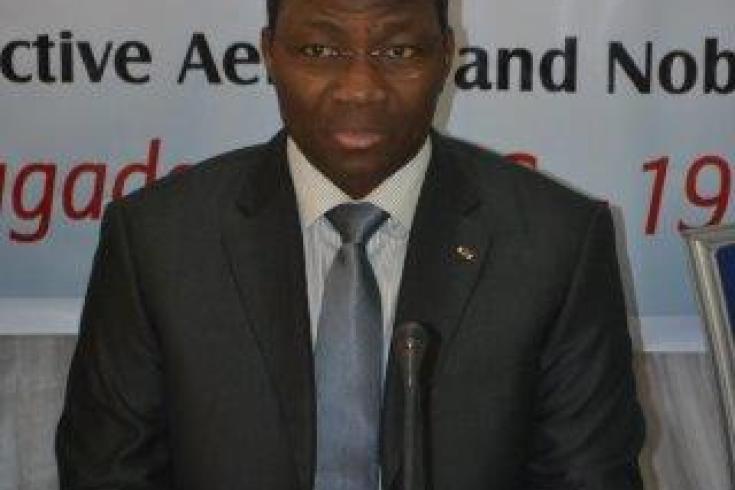NDC Development Workshop in Burkina Faso

Djibril Y. Bassolet, Minister of Foreign Affairs and of regional cooperation
"The presence of many experts from different African countries is testimony to our countries' dedication to address questions as urgent as those linked to the analysis of data, notably when it comes to the proliferation of nuclear weapons, accidents and other catastrophes."

Paulina Amponsah, Ghana Atomic Energy Commission
“The NDC development workshop has been an eye opener for the Ghana NDC. I have gained insight in the activities of other NDCs in Africa as well as the achievements and challenges we face. This has been a very rewarding workshop.”

Inside the Transportable Xenon Laboratory currently deployed in Burkina Faso.
Before now, limited infrastructure and data analysis skills have continued to hinder the Nigerian NDC from carrying out the implementation of the requirements of the CTBT. The CTBTO’s capacity building project support has gone a long way towards removing this hindrance.
Since the programme’s inception five years ago, the percentage of African Member States having established a Secure Signatory Account (to be able to access CTBTO data) has increased to over 60 percent, representing an increase of 40 percent. This year alone, four additional countries have established an account: the Central African Republic, Chad, Niger and the Sudan. The last NDC waveform analyst training course under EU Joint Action funding for African countries will take place in Vienna, Austria, from 20 January to 14 February 2014. The PTS collected recommendations from the participants for its future capacity building activities for African countries and other regions that will be maintained at its high level..

Awwal Bisallah, Nigeria Atomic Energy Commission

The workshop was funded by the European Union
I would like to express my thanks to our host for the warm welcome and the very good organization. I am grateful to the European Union for its sustained assistance to sustain our efforts in making the verification system a reality.
18 Dec 2013